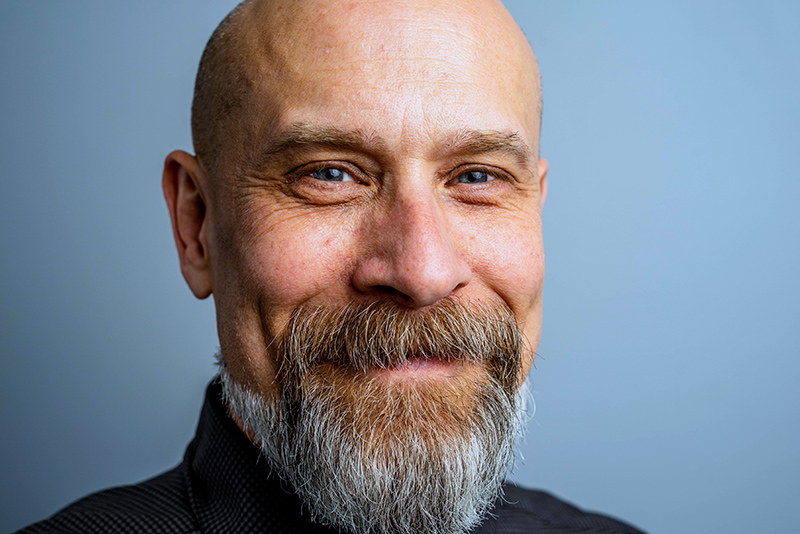By the Mental Health Foundation.
Note from the founder: As Men’s Health Month draws to a close we want to take the opportunity highlight men’s overall health which also includes mental health. Many times, men can overlook their own health and this article is intended to raise awareness about some key areas to pay attention to as well as be a jumping off point to equip men with some tools to address those areas. Consider sharing this article with the men in your life.
By the Mental Health Foundation.
Note from the founder: As Men’s Health Month draws to a close we want to take the opportunity highlight men’s overall health which also includes mental health. Many times, men can overlook their own health and this article is intended to raise awareness about some key areas to pay attention to as well as be a jumping off point to equip men with some tools to address those areas. Consider sharing this article with the men in your life.
Each June, Men’s Health Month provides a great opportunity to highlight the important issue of men’s overall health and begin the conversation about adjustments that can be made to address and improve it year-round.

Men can face a number of preventable health problems, but through raising awareness during June, we can encourage the men in our lives to consider their options for early detection and treatment of these conditions.
According to a study published by the CDC, men die an average of 5 years earlier than women and are more impacted by some of the top causes of death, including heart disease, cancer, and accidental injury.
While it’s important for everyone to take care of their health, men can overlook their own well-being for a wide range of reasons, but just a few simple lifestyle changes can make a big difference in their overall health.
Below are some tips on how to do this.
TABLE OF CONTENTS
1. The Importance of Men’s Health:
Why paying attention to your health is important, especially as you get older.
As men age, so does their health, so even though they didn’t need to give it much attention in earlier decades, they do in later ones. Unfortunately, men are often reluctant to see a doctor for basic checkups, or take care of themselves, which can lead to serious health problems down the road. But by understanding the importance of their health and taking steps to maintain a healthy lifestyle, men can enjoy a better quality of life as they age.
As men get older:
- Their testosterone levels decrease, which can lead to problems such as erectile dysfunction and reduced muscle mass.
- Men are at greater risk for heart disease and other cardiovascular problems.
- Men are more likely than women to develop certain types of cancer, such as prostate cancer.

Fortunately, there are things that men can do to improve their health. Exercise and eating a healthy diet are vital for all men, but especially for those over the age of 40. In addition, regular checkups with a doctor can help identify potential health problems before they become serious.
MD Anderson has a helpful list of healthy habits and areas for concern, broken down by different age brackets. Elements for all men to consider include:
- HPV screening
- Controlling drinking
- Eliminating tobacco use
- Checking blood pressure
- Checking cholesterol levels
- Checking heart health
- Protecting your skin
- Working out
- Relaxing
- Maintaining a healthy weight
- Prostate cancer screening
- Having your colon checked
- Annual checkups
- Healthy diet
2. Staying Healthy:
Simple lifestyle changes that can make a big difference in your overall health
There are many simple lifestyle changes that men can make to improve their overall health.
- EXERCISE – Perhaps the most important change is to get regular exercise. Men who are physically active have a lower risk of heart disease, stroke, and type 2 diabetes, and they also tend to have lower blood pressure and cholesterol levels. Men who are inactive, on the other hand, are more likely to develop these chronic health problems.
- DIET – Another important lifestyle change is to eat a healthy diet. Men should eat plenty of fruits, vegetables, and whole grains. They should also limit their intake of saturated fats, trans fats, and cholesterol. Those who follow these dietary guidelines are less likely to develop obesity, heart disease, and type 2 diabetes.
- SLEEP – Finally, men should make sure to get adequate sleep each night. Sleep is essential for good physical and mental health, and men who get enough sleep are less likely to suffer from depression, anxiety, or mood swings. They are also less likely to be involved in accidents or experience work-related injuries.
Making these simple lifestyle changes can have a profound impact on a man’s long-term health prospects.
3. Health Screenings:
Why it’s important to get regular checkups and screenings, and what you can expect.
Regular checkups and screenings are essential. By getting screened for potential health problems, you can catch issues early on and get the treatment you need.
Health screenings can help detect a variety of issues including:
- heart disease
- stroke
- cancer
- sexual dysfunction
- depression
- diabetes
Many of these conditions can be treated effectively if they are caught early.

During a man’s health screening, your doctor will likely ask about your medical history and any risk factors for specific conditions. He or she will also perform a physical exam, which may include checking your blood pressure, weight, and cholesterol levels.
Depending on your age and risk factors, you may also need to get additional tests, such as a colonoscopy, chest X-ray, or prostate exam.
Not all healthcare providers agree on what men should be screened for at what age, so take your health into your own hands and start getting regular men’s health screenings at age 40 to protect your health and improve your quality of life, should any early signs of a health issue be found.
Schedule an appointment with your primary physician today to get started.
4. Warning Signs of Illness:
What to look out for and when to see a doctor
Everyone gets sick from time to time, but sometimes it can be hard to tell when an illness is serious enough to warrant a trip to the doctor. In general, men’s health warning signs fall into three main categories:
- pain,
- changes in appearance, and
- changes in behavior.
Of course, not every symptom will fit neatly into one of these categories, but this can be a helpful way to think about when to seek medical attention.

If you’re experiencing pain that is severe, persistent, or unusual, it’s probably a good idea to see a doctor. This is especially true if the pain is accompanied by other symptoms like:
- Fever
- Nausea
- Joint swelling
- Changes in appearance
Also, if you notice any sudden or dramatic changes in your weight, skin color, or hair texture, it’s worth talking to a doctor.
And finally, changes in behavior can also indicate an underlying health problem. If you find yourself feeling unusually tired, irritable, or forgetful, it’s worth getting checked out.
Of course, these are just general guidelines — if you’re ever worried about your health, it’s always best to err on the side of caution and see a doctor regardless.
5. Healthy Eating for Men:
Nutritional advice specifically for men, including information on heart-healthy, anti-inflammatory, and testosterone-boosting foods

When it comes to men’s health, a few key areas should be given extra attention.
Heart health is one of the most important, as men are more likely than women to suffer from heart attacks and other cardiovascular problems.
Eating a healthy diet is one of the best ways to promote heart health, and there are certain foods that are especially beneficial. Salmon, for example, is rich in omega-3 fatty acids that can help to reduce inflammation and lower cholesterol levels. Walnuts are another great option, as they contain antioxidants, which can protect the heart from damage.
For men who are looking to boost their testosterone levels, making dietary changes to include foods like eggs, beef, and oysters are all excellent choices.
6. Exercise for Men’s Health:
The benefits of exercise, and how to get started if you’re not used to being active

Leading an active lifestyle is one of the best things you can do for your health. Exercise has a myriad of benefits, from reducing your risk of heart disease and stroke to improving your mental health and cognitive function. And yet, according to the CDC, less than half of all US adults do the recommended amount of physical activity each week.
If you’re not used to being active, it can be tough to know where to start. The Mayo Clinic advocates for 150 minutes of moderate or 75 minutes of vigorous exercise, but not everyone will have the determination or time in their schedule to kick start their fitness journey at full speed. However, with a little planning and persistence, you can make exercise a part of your life.
Talk to your doctor about what kind of activity is right for you, set some realistic goals, and find an activity that you enjoy. Taking small steps is the key to making lasting changes.
7. Quitting Smoking:
Why quitting smoking is so important for your health, and resources to help you quit
Smoking is one of the leading causes of preventable deaths in men, yet each year, millions of men continue to smoke. Quitting smoking is essential for men’s health, and there are many resources available to help them quit.
Smoking is linked to a variety of health problems, including cancer, heart disease, and stroke. It also lowers men’s life expectancy and increases their risk of developing chronic respiratory problems. In addition, smoking damages men’s sperm, which can lead to infertility. For these reasons and more, quitting smoking is essential for a man’s long-term healthiness.

There are many resources available to help men quit smoking. Many health insurance plans cover cessation programs, and there are also a number of quit lines, such as the National Cancer Institute‘s Quitline (1-800-quit-now), that offer free counseling and support. In addition, there are many over-the-counter and prescription medications that can help with nicotine withdrawal.
Quitting smoking is not easy, but it is possible with the right support.
8. Alcohol:
Reducing or eliminating alcohol use
In the US, alcohol use is common and present in most social settings. Alcohol physically affects men and women differently, and men are twice as likely as women to binge drink and develop alcohol use problems.
Various claims have been made about moderate alcohol consumption’s potential to contribute to reduced risk of heart disease, ischemic stroke, and even diabetes. However, as noted by the Harvard Public School of Health, it is not healthy for everyone, and the main difference between benefits and risks comes down to the dose.
Alcohol abuse can lead to a number of health problems, including:
- Reproductive health issues
- Liver disease
- High blood pressure
- Cancer of the mouth, throat, esophagus, liver, and colon

It can also contribute to accidents and injuries to oneself and those around the individual, and recent studies indicate that men account for higher rates of alcohol-related hospitalizations and 75% of alcohol-related deaths.
If you drink alcohol, it’s important to be aware of the risks and to drink in moderation. Men should also be aware of the signs of alcohol abuse and addiction and seek help if they, or someone they know, has a problem. Early intervention can make a big difference in the long-term outcome.
For those looking to question their drinking with a view to making healthier choices, this should start with a professional perspective on where they are today, followed by looking at different courses of action to curtail or quit.
Check out our site for more on alcohol abuse and other substance related disorders.
9. Managing Stress:
Tips for reducing stress and improving your emotional well-being
Men’s mental health is an often ignored and neglected topic, and too often, men internalize their emotions, which can lead to dangerous consequences.
Men are more likely than women to be susceptible to alcohol and drug abuse, violence, and suicide. It’s important to understand their signs of mental distress so that loved ones can help them get the support they need.
Distress can present in the way men think, feel, or act, and some common signs include:
- Withdrawing from friends and family, no longer doing activities, loss of interest in hobbies or pastimes
- Irritability
- Excessive sleepiness or insomnia
- Taking unnecessary risks or engaging in risky behaviors
- Apathy, feeling hopeless or helpless
- Weight gain or loss, loss of appetite
- Excessive worry or fear
- Decline in personal care
- Decline in self-esteem
- Lack of concentration
- Thoughts of suicide
If you notice any of these signs in a man you know, reach out to him and offer your support.

It’s time to break the silence around men’s mental health.
In order to cope with pressure in the home or professional arena, we often learn through media or in our own family to suppress our emotions and to deal with stress, anxiety or depression on our own. However, this can lead to serious health problems down the road. It’s important to find healthy ways to manage stress in order to maintain our emotional well-being.
Here are a few tips:
- Talk to someone you trust about what is stressing you out. This can be a friend, family member, therapist, or anyone who will listen and offer support.
- Get regular exercise. Exercise releases endorphins, which have mood-boosting effects.
- Practice relaxation techniques such as deep breathing or meditation. These can help to calm the mind and body.
- Make time for hobbies and activities that you enjoy. This can help you to take your mind off stressful thoughts and relax.
Taking care of your mental health not only improves your own life, it also enriches your relationships at home, socially, and at work.
10. Resources for Men’s Health
There are many resources available to help men learn more about men’s health, and this list is a great place to start:
- Men’s Health Resource Center
- Men’s Health Network
- Mens Health Forum
- Men’s Health Month
- Men’s Health Education Council
- Mayo Clinic
- Movember
- WebMD
- American Urological Association
- American Society for Men’s Health
- Black Men’s Health Project
- US Dept of Health Minorities Men’s Health
- Man Therapy
- Samhsa
- National Institute on Alcohol Abuse and Alcoholism
Conclusion
To live a full and rewarding life, take the time to learn more about men’s health and how to take care of yours. If you’re satisfied you’re doing what it takes to have a healthy body and mind for the long haul, you may find opportunities to raise awareness of men’s health issues within your sphere of influence, and you can also encourage the men in your family and friend groups to join you in making healthy lifestyle choices.
Subscribe to get notifications about future articles.

